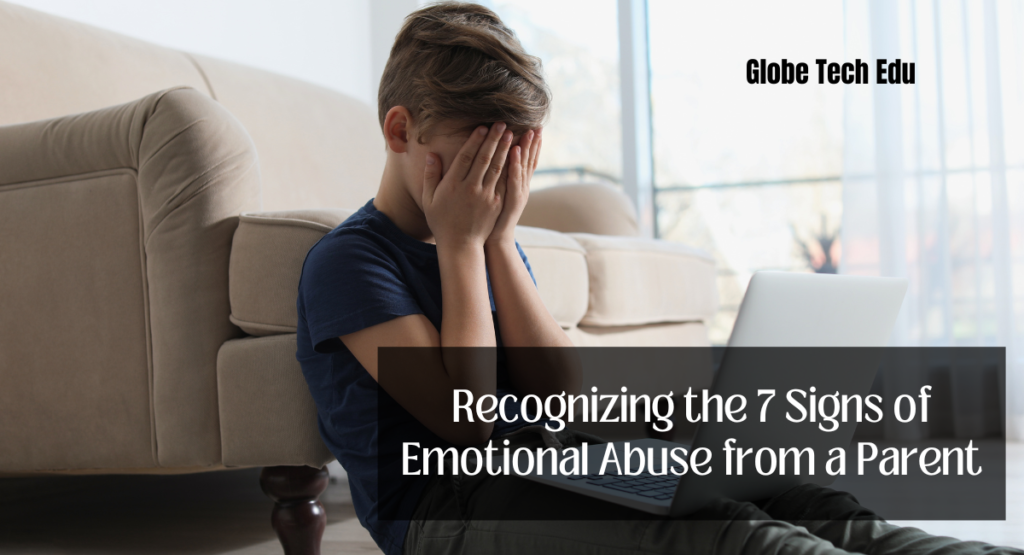Emotional abuse, a clandestine malevolence that often eludes overt detection, demands our contemplation. In acknowledging its sensitive nature, we peel back the layers concealing the emotional scars inflicted, particularly when the source is a figure as sacred as a parent.
This exploration serves as a sentinel, a guide to navigate the labyrinth of emotions and unveil the importance of recognizing subtle yet profound signs of emotional abuse.
Table of Contents
Sign 1: Constant Criticism
Delving into the labyrinth of emotional abuse, we first encounter the insidious nature of constant criticism. A barrage of disparaging remarks, when persistent, metamorphoses into a formidable form of emotional abuse, chiseling away at the bedrock of self-esteem and corroding the bastion of mental health.
Sign 2: Unreasonable Control
In the shadows of manipulation lies the ominous specter of unreasonable control. Discussing the signs of this coercive influence, we unravel the impact on a child’s delicate sense of autonomy. It’s a puppetry of emotions, a subtle dance that leaves the child ensnared in the tendrils of unwarranted dominion.
Sign 3: Verbal Insults and Demeaning Language
The battlefield of emotional abuse echoes with the resonance of verbal insults and demeaning language. Recognizing the harmful effects of these linguistic weapons is imperative. It’s a linguistic crucible where demeaning language becomes a potent elixir, contributing to the toxic amalgam of emotional abuse.
Sign 4: Conditional Love
As we traverse the intricate landscape of parent-child relationships, we encounter the beguiling concept of conditional love. Exploring its contours, we uncover the impact on a child’s emotional well-being. The fragility of affection becomes a double-edged sword, cutting deep into the psyche of the unsuspecting.
Sign 5: Gaslighting
A term oft-shrouded in ambiguity, gaslighting emerges as a defining facet of emotional abuse. Defining its contours, we uncover the manipulative tactics that distort reality. It’s a psychological sleight of hand, leaving the child questioning their own sanity in the wake of orchestrated confusion.
Sign 6: Isolation
In the arsenal of emotional abusers, isolation stands as a formidable weapon. Examining its manifestation, we discern the signs of social, emotional, or physical seclusion. It’s a calculated estrangement, leaving the child adrift in a sea of solitude, with only the echoes of their own despair for company.
Sign 7: Guilt and Blame
The dance of guilt and blame orchestrated by emotional abusers unfolds as a tragic symphony. Understanding its nuances, we illuminate the insidious ways abusers shift blame onto the child. It’s a psychological burden, laden with the weight of unwarranted culpability, eroding the bedrock of self-worth.
Sign 8: Withholding Affection
Exploring the desolate terrain of emotional neglect, we confront the effects of withholding affection. Recognizing the subtle signs, we uncover the poignant absence of emotional warmth from a parent. It’s a chilling void, leaving the child yearning for a touch that never graces their soul.
Sign 9: Threats and Intimidation
In the dimly lit corridors of emotional abuse, threats and intimidation cast long shadows. Discussing their role, we discern the signs of fear and manipulation embedded in parent-child dynamics. It’s a sinister ballet, choreographed to instill terror, leaving the child ensnared in a web of coercion.
Sign 10: Unpredictable Mood Swings
The tempestuous seas of a parent’s unpredictable emotional states wreak havoc on the shores of a child’s psyche. Examining their impact, we recognize the signs of instability and the toll it exacts. It’s an emotional rollercoaster, leaving the child unmoored in the unpredictable eddies of a tempest.
Sign 11: Undermining Achievements
In the final act of emotional manipulation, abusers undermine their child’s successes. Exploring this undermining, we recognize the signs of achievements and accomplishments being callously minimized. It’s a subtle erosion, chipping away at the foundation of the child’s self-worth.
Conclusion
In conclusion, recognizing and addressing the spectral menace of emotional abuse is paramount for safeguarding mental health. This exploration is a clarion call to prioritize emotional well-being and seek help when needed. Let this be a collective endeavor to dismantle the shadows, fostering a society that nurtures the resilience of those who have weathered the silent storms of emotional abuse.



